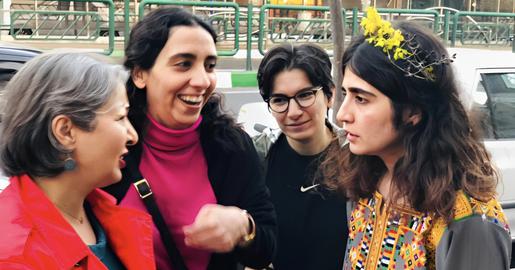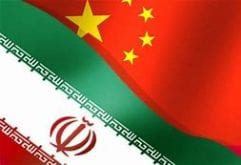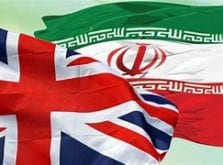Iranwire – After being arrested, journalists, civil and political activists, as well as trade union members are often either fired from their jobs or banned from working in their fields of expertise. Some opt to leave their work.

Paravan Leather emerged amidst these prohibitions and constraints. Hasti Amiri and Noushin Jafari, two civil activists recently freed from custody, and Sepideh Qoliyan, a political prisoner currently held in Tehran’s Evin prison, initiated this business.
“Paravan is not just a job for us. It embodies a narrative of friendship and collective endeavors… all of us gathered in a singular location and acquired the skill of crafting leather bags. Currently, two of us operate outside prison confinement, while Sepideh remains at Evin, yet we continue that work,” the activists said.
What does the Islamic Republic do with the livelihoods and businesses of its critics and opponents?
From Imprisonment to Job Termination
Disrupting the livelihoods of its critics, opponents, as well as civil and union activists is a tool of repression used by the Islamic Republic.
A substantial number of individuals detained on political and security charges experience job dismissals upon their release from pretrial detention or imprisonment.
“Banning you from doing Journalism would be worse than sending you to prison for 10 years,” an interrogator told Jila Bani Yaqoub, a prominent journalist arrested during the Green Movement protests which followed the disputed 2009 presidential election.
She was sentenced to one year in prison and prohibited from practicing journalism for three decades.
After their release from custody in April 2015, Masha Amrabadi and Reyhaneh Tabatabai were banned from working as journalists in domestic publications for many years due to their prison record. They were able to find work in the National Library and Document Center of Iran during the administration of President Hassan Rouhani, but they were forced to resign due to pressure exerted by security institutions.
“I won’t forget that dignity and its preservation were among Hassan Rouhani’s election slogans, alongside promises of lifting restrictions, freeing political prisoners and eradicating unlawful confrontations,” Amrabadi wrote on social media.
Reza Shahabi, a labor activist affiliated with the trade union of Tehran’s bus company, was dismissed from his job following repeated arrests and a lengthy incarceration over his participation in the Green Movement protests. His wife, Robabeh Rezaei, produced homemade goods such as pickles to sustain their life.
Then there’s the case of Saman, a humanities PhD candidate. Saman, which is a pseudonym, was sentenced to seven years in prison after participating in the protests against the 2009 election results.
Upon his release, the university cited various excuses to deny him the opportunity to continue his studies. This student, who worked in a shop in Tehran, found himself unemployed.
“Nearly all the activists released from prison are unable to reclaim their former jobs. Unfortunately, this is a deeply pervasive issue,” he told IranWire.
“For those who’ve endured temporary detention or prison, losing employment means continued imprisonment after their release,” Saman continued.
He cited the case of a former prisoner “who often says he’d prefer to be in prison where he could have a chicken meal at least once a week.”
A Tool to Crush and Humiliate Activists
Prominent political activist Taghi Rahmani, the husband of jailed human rights advocate Narges Mohammadi, has spent many years behind bars.
According to him, the dismissal of activists is the primary tool used by the government to “silence” them.
“Upon my release in 1994, I wasn’t able to find a job anywhere,” Rahmani told IranWire. “I grappled with this challenge, and now it’s even more severe. I resorted to gardening and renting land to cultivate fruit trees. In 1984, I was a student and I was also dismissed from my job, prompting me to work with my uncle in his car repair shop.”
Regarding his wife’s dismissal from the Iranian Engineering Inspection Organization, he said: “Narges’s employment there started in 2001 and was terminated in 2009 under the pressure of the then-head of the organization…the ultimatum was clear: sever your ties with the Human Rights Defenders Association or be sacked.”
During the 2000s, Mohammadi served as an inspector at the Iranian Engineering Inspection Organization while assuming the roles of vice chairperson and spokesperson for the Iranian Human Rights Defenders Association. Since the late 2000s, she has mainly resided in prison, separated from her children and husband.
Persevering against Oppression
Over the 44-year history of the Islamic Republic, countless individuals were imprisoned and then left jobless due to their activism.
“The truth is that, once released from prison, you feel the need to resist with even greater strength,” Saman told IranWire.
“I managed to offer private tutoring lessons for some period. Friends supported me and enabled me to stand on my feet after some time following my release,” he added.
Referring to courageous activists like Qoliyan, Amiri and Jafari, he said: “The endeavors of these remarkable individuals transcend resilience. They’ve channeled their concern for the rights of citizens unjustly imprisoned or impacted by discriminatory governmental policies into a business that serves the public good.”
Supporting Activists: A Social Responsibility
While acknowledging the commendable nature of the efforts aimed at improving people’s living conditions, Rahmani said: “These efforts fall short. We need funds that can provide basic subsistence to those who’ve been dismissed or even facilitate their employment in the private sector…It’s our obligation to extend our support.”
“We’re contending with a government that meddles in every facet of the citizens’ lives and we must unite,” he continued. “Our problem as Iranians is that we struggle to work collectively. Collaborative efforts in this sphere are essential to pave the way for a lasting solution: the establishment of an environment within Iranian society in which individuals aren’t ousted from their positions for expressing their opinions.”
 Shabtabnews In this dark night, I have lost my way – Arise from a corner, oh you the star of guidance.
Shabtabnews In this dark night, I have lost my way – Arise from a corner, oh you the star of guidance.



